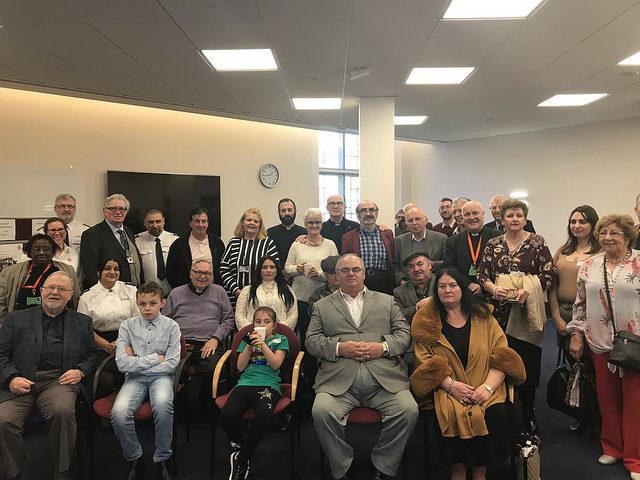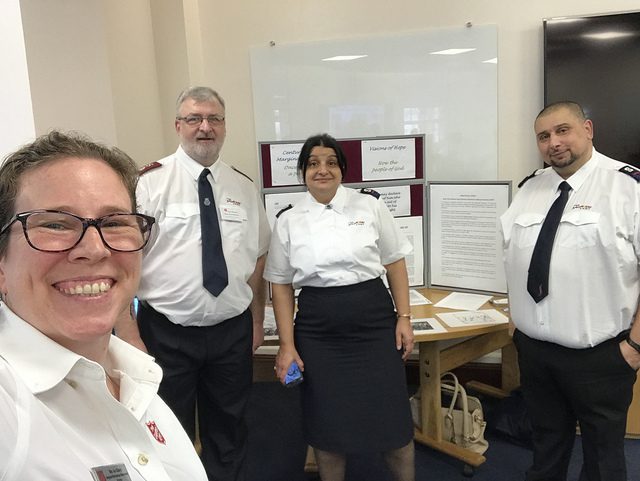Four members of The Salvation Army European Roma Mission Network attended a recent Church of England Synod debate entitled “Mission and Ministry Among Gypsy, Roma and Traveler Communities.” A parallel meeting, organized by the ecumenical Churches Network for Gypsies, Travelers and Roma, and attended by members of the Synod, sought to address how the Church is responding—practically and theologically—to these groups, which have often been subjected to discrimination and marginalization over a prolonged period.
The Salvation Army delegation included Major David Blowers and Envoys David Karicka and Marie Karickova, from the United Kingdom Territory with the Republic of Ireland, along with Jo Clark, International Facilitation Specialist for Community-Based Salvation Army Ministry at International Headquarters. They observed the debate and were present for the vote, in which the Church of England committed to combat hate crime and racism in all its manifestations. Other pledges included a commitment to offer appropriate chaplaincy and pastoral care to these people groups and to collaborate with others to enable land to be made available for use as Traveler sites.
“‘It was a rewarding experience to be part of a stimulating day of discussion and practical application,” Clark said. “It was a reality check to learn that the entire mobile UK Traveler population could be accommodated on a piece of land just one square mile in size, for example.”

Delegates heard of the “extreme” levels of hostility experienced by members of these communities, with prejudice described as “the last apartheid…the last ‘acceptable’ form of racism.” The biggest single issue affecting such communities was identified as the “lack of permanent [dwelling] sites and the difficulties of getting planning permission due to local opposition egged on by a hostile media.” Without secure accommodation, participants heard, access to education, employment and healthcare services is severely restricted.
Rev. Canon Dr. Jane Charman from the Diocese of Salisbury—a region with a sizeable Traveler population—reminded participants that it’s not difficult for ‘you shall not live amongst us on equal terms’ to become ‘you shall not live amongst us’ to become ‘you shall not live.’”
At the “fringe” event following the formal debate, Salvation Army delegates took the opportunity to present to the group and share examples of community-based ministry among Roma groups in the UK and across Europe. The Salvation Army is working with Roma communities in 12 European countries, both through the provision of social services and in engaging Roma people in church community life. This is a practical outworking of The Salvation Army’s international mission statement to “preach the gospel of Jesus Christ and to meet human needs in his name without discrimination.”
The warmth and hospitality of the delegates from the Gypsy, Roma and Traveler communities themselves was also notable. “I was a little hungry during one of the coffee breaks, and before I knew it I’d been offered drinks, biscuits, sandwiches, a packet of crisps,” Clark said. “The connections we made throughout the day—both with practitioners within the Church and amongst the Gypsy, Traveler and Roma communities themselves—were also significant, and inspiring. I met a man who had just translated the Bible into Romani in the Cyrillic script—an outstanding act of faith and commitment.”
See more in “Mapping The Salvation Army’s work with Roma Across Europe,” published in August 2017 by The Salvation Army EU Affairs Office.












